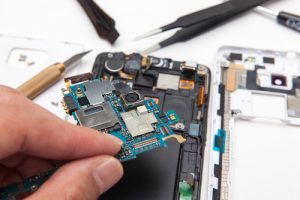
Credit: NothingIsEverything/Shutterstock
Legislation advancing in the state of Washington bans the sale of electronics with permanently affixed or otherwise difficult-to-remove batteries.

Credit: NothingIsEverything/Shutterstock
Legislation advancing in the state of Washington bans the sale of electronics with permanently affixed or otherwise difficult-to-remove batteries.
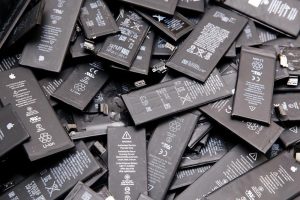
Credit: Parilov/Shutterstock
Attorneys have asked a federal judge to temporarily halt Apple’s iPhone battery recycling program, claiming the company could be destroying critical evidence in a lawsuit.
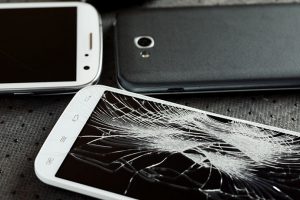 A common reason consumers discard mobile phones is cracked screens, but technology currently in development could one day change that.
A common reason consumers discard mobile phones is cracked screens, but technology currently in development could one day change that.
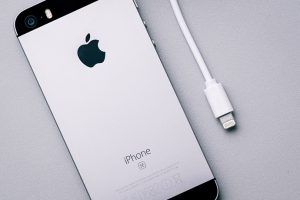 Apple has been slowing down the performance of iPhones with older batteries, which likely led to more of the smartphones prematurely entering the end-of-life stream.
Apple has been slowing down the performance of iPhones with older batteries, which likely led to more of the smartphones prematurely entering the end-of-life stream.
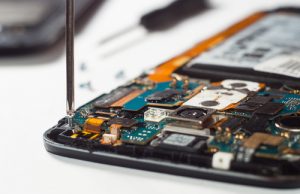 What’s important to consumers who are considering purchasing refurbished mobile phones? Recent research offers some insights into that secondhand device market.
What’s important to consumers who are considering purchasing refurbished mobile phones? Recent research offers some insights into that secondhand device market.
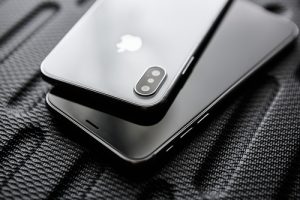 Two recent teardowns dug into the guts of Apple’s latest device, yielding insights on repairability and the estimated cost of the phone’s components.
Two recent teardowns dug into the guts of Apple’s latest device, yielding insights on repairability and the estimated cost of the phone’s components.
 A group of Taiwanese developers has unveiled a recycling system to recover glass, indium and liquid crystal from LCD screens.
A group of Taiwanese developers has unveiled a recycling system to recover glass, indium and liquid crystal from LCD screens.
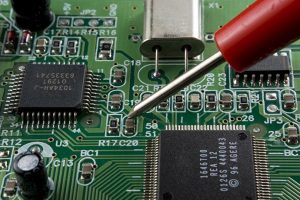 Nearly 300 IT product refurbishing experts convened in New Orleans this week to consider industry trends and to address barriers to growth. The event was the 14th annual Electronics Reuse Conference, now operated by the consulting firm E-Reuse Services.
Nearly 300 IT product refurbishing experts convened in New Orleans this week to consider industry trends and to address barriers to growth. The event was the 14th annual Electronics Reuse Conference, now operated by the consulting firm E-Reuse Services.
 Are Apple’s new iPhones environmentally friendly? It depends on which rating system you ask.
Are Apple’s new iPhones environmentally friendly? It depends on which rating system you ask.

